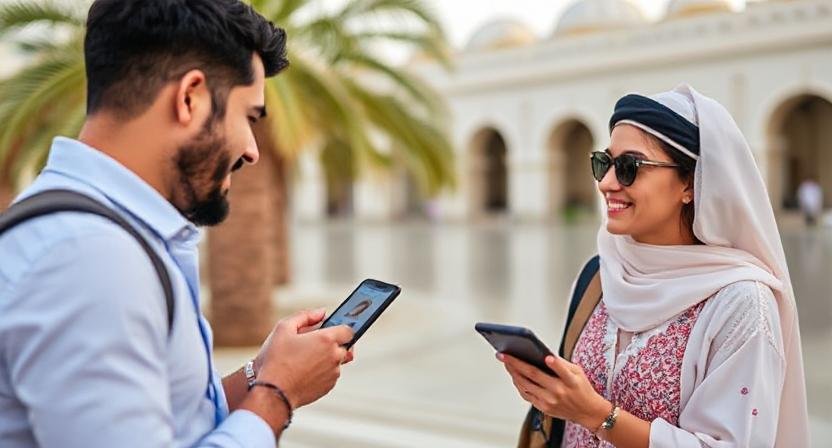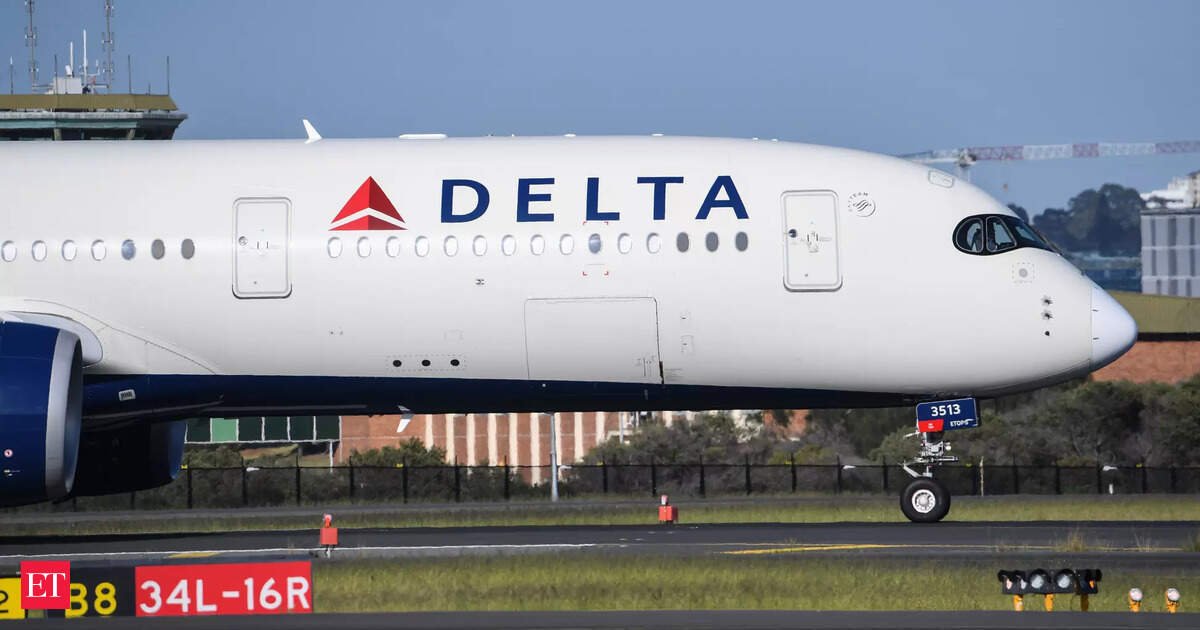AI in Travel
UAE Travelers Adopt AI for Trips, But Favor Human Agents

The Persistent Appeal of Human Expertise in AI-Driven Travel
In the bustling hubs of Dubai and Abu Dhabi, where skyscrapers pierce the desert sky and luxury is a way of life, travelers are embracing artificial intelligence for trip planning with unprecedented enthusiasm. Yet, even as AI algorithms curate personalized itineraries and predict preferences with eerie accuracy, a significant cohort of UAE residents insists on the irreplaceable value of human interaction. According to experts cited in a recent Gulf News report, while AI streamlines logistics like booking flights and hotels, it falls short in delivering the emotional reassurance and nuanced advice that only a human travel agent can provide. This duality reflects a broader tension in the tourism sector, where technology promises efficiency but human elements foster trust.
The report highlights surveys showing that over 60% of UAE travelers use AI tools for initial research, drawn by their speed and data-driven insights. Platforms like ChatGPT or specialized apps from companies such as Tripadvisor integrate real-time data to suggest hidden gems or optimize routes. However, when it comes to final decisions—especially for high-stakes trips involving families or luxury escapes—many prefer consulting professionals. “AI can plan, but it can’t empathize,” notes one Dubai-based travel consultant in the Gulf News piece, underscoring how cultural sensitivities in the Middle East amplify the need for personalized, human-guided experiences.
Balancing Innovation with Tradition in UAE Tourism
This preference isn’t isolated; it’s echoed in global trends, particularly in emerging markets like the UAE and Saudi Arabia. A Boston Consulting Group analysis, referenced in a TravelMole article, reveals that while AI is reshaping travel planning, consumers in these regions still seek a “human touch” for complex arrangements. In the UAE, where expatriates and locals alike navigate diverse cultural expectations, AI’s limitations become apparent in handling bespoke requests, such as halal dining options or family-oriented adventures that require insider knowledge.
Looking ahead to 2025, industry forecasts predict a surge in AI adoption, with tools like agentic AI enabling hyper-personalized journeys. A Travel Daily News feature from May 2025 projects global travel reaching 5.2 billion trips, fueled by such technologies. Yet, for UAE travelers, this boom doesn’t eclipse the desire for human oversight. Posts on X (formerly Twitter) from users in the Gulf region frequently discuss AI’s convenience but lament its lack of “soul,” with one viral thread praising hybrid models where AI assists but agents refine.
Emerging Technologies and the Human-AI Hybrid Model
The integration of AI in UAE’s tourism is further propelled by government initiatives, such as the AI-powered visa reforms announced in 2025. As detailed in a Travel And Tour World update, these changes use predictive algorithms to streamline processes, attracting global talent and boosting inbound travel. However, experts warn that over-reliance on tech could alienate segments valuing authenticity. Kantar’s research, explored in their February 2025 publication, shows tourists leaning on AI for ease but craving human stories and connections.
Sustainability and experiential travel, key trends for 2025, also highlight this blend. A Smart Guide blog post outlines how AI aids eco-friendly planning, yet UAE travelers often turn to human experts for vetted, responsible options. In conversations on X, influencers like Dr. Khulood Almani discuss strategic AI trends, emphasizing revenue-focused integrations that complement human roles.
Challenges and Opportunities for Travel Industry Stakeholders
For travel agencies in the UAE, this means evolving into hybrid operations. Companies like Emirates Holidays are investing in AI chatbots while training staff to handle emotional intelligence aspects, as per insights from Travel And Tour World. The challenge lies in training AI to mimic empathy, but current limitations—such as misinterpreting cultural nuances—keep humans indispensable.
Ultimately, the future of travel in the UAE hinges on symbiosis. As one X post from a luxury travel firm notes, “AI designs the blueprint, but humans add the heart.” This approach not only satisfies discerning travelers but positions the region as a leader in innovative, human-centric tourism. With projections from Gulf Times indicating AI’s role in efficient air travel, the industry must navigate this balance to thrive amid 2025’s digital revolution.
AI in Travel
More than Sixty Percent of UAE Travelers Use AI for Trip Planning, but Human Connection Still Essential and Popular for a Tour

Wednesday, August 6, 2025
Author: TTW News Desk
Travel technology is profoundly changing the tourism sector around the world, redefining how tourists prepare, book, and experience vacations. 61% of travelers in the UAE have faith in Artificial Intelligence (AI) to organize all details of their holidays, in contrast to merely 48% of other international tourists. This tendency is likely to grow further as AI becomes increasingly integrated into daily consumer behavior.
The report also points out the growing importance of AI to travelers who organize trips to the Middle East. Close to six in ten travelers utilized AI for trip planning, and 21% used it prior to their last trip. With growing AI adoption, the technology will remain critical in offering recommendations and enhancing booking experiences, particularly for digital natives. Travel businesses are increasingly adopting AI to improve customer service as well as enhance economic impact.
Digital Transformation in Travel and Hospitality
As the travel and tourism sectors undergo digital transformation, Arabian Travel Market (ATM) 2025 offered a platform for experts across industries to discuss how AI-powered tools, personalized services, and data-driven designs are reshaping the industry. During the event, Amy Read, VP of Innovation at Sabre Hospitality, emphasized the importance of maintaining human connection in hospitality. She noted that innovation should amplify key moments rather than replace them, freeing up staff time for more meaningful interactions with guests.
In this regard, AI solutions like SynXis Concierge AI are revolutionizing customer service. This generative AI tool offers immediate, detailed responses to guest queries, reducing reliance on individual staff knowledge while ensuring consistent, high-quality service around the clock. Similarly, Miral’s AI concierge at attractions like Yas Bay Waterfront and Ferrari World Yas Island in Abu Dhabi uses AI to personalize visitor experiences, offering tailored suggestions based on individual preferences.
AI’s Impact on the MICE Sector
The Meetings, Incentives, Conferences, and Exhibitions (MICE) sector has also benefited greatly from AI. The global meetings industry is expected to reach USD 945 billion by 2025, with projections exceeding USD 2.3 trillion by 2032. AI tools are proving critical in automating event sourcing, translating content in real-time, and providing personalized event experiences. Data-driven personalization is now central to increasing engagement and loyalty among attendees.
However, experts cautioned against an over-reliance on technology at the expense of authenticity. While AI enhances personalized travel experiences and improves operational efficiency, it should complement, not replace, human roles. The shift encourages organizations to focus more on guest-focused interactions, ensuring that technology and human connection go hand-in-hand.
Focus on Responsible Innovation
Danielle Curtis, Exhibition Director at Arabian Travel Market, emphasized that the most effective technologies are those that amplify human interactions, improve efficiency, and directly address customer needs. The travel industry remains committed to responsible innovation, placing people at the center of every technological solution.
Future of Arabian Travel Market
ATM Travel Tech 2025 recorded a rise of more than 26% in the quantity of products featured. ATM 2026 (May 4-7, 2026) will again focus on technology’s role in revolutionizing the future of travel.
Being the world’s first and largest dedicated travel and tourism event, Arabian Travel Market (ATM) keeps on fueling expansion and innovation in all sectors with an innovative arena for industry players to network, learn, and exchange ideas. The year-on-year growth of the event (up 16%) attracts more than 55,000 industry professionals from 166 countries. With its unparalleled connectivity, Dubai is at the center of this global industry shift.
AI in Travel
Booking.com unveils its Global AI Sentiment Report

Booking.com has unveiled The Global AI Sentiment Report, a major new study exploring how consumers across 33 markets perceive and interact with artificial intelligence in everyday life and travel.
Drawing on responses from over 37,000 people, the report paints a complex picture: while excitement around AI is high, concerns about trust, transparency, and human oversight remain key barriers to broader adoption.
High interest, low trust
Globally, 91% of respondents to booking.com survey said they are excited about Artificial Intelligence. 89% expressed interest in using AI tools for future travel planning. However, only 6% reported fully trusting AI. 42% declared to always fact-check AI outputs, while 29% do so sometimes. Just 12% feel comfortable with AI making decisions without human input, and 10% are strongly opposed to it. Most consumers appear to value AI more as a support tool than a replacement for human judgment.
Booking.com report categorizes consumers into distinct groups: 36% are “AI Enthusiasts” intrigued by the technology’s potential, 13% are “AI Advocates” who champion its responsible adoption.
However, this excitement coexists also with significant caution. While 25% are “AI Detractors,” showing active resistance. Another 13% are “AI Cautious,” expressing reservations about its growing influence.
While 91% acknowledge at least one benefit—such as time-saving (51%), improved productivity (40%), or learning support (48%)—an equal percentage also reported at least one concern.
Regional gaps in trust and AI recognition
Regional variation reshapes Artificial Intelligence perception from one continent to another. Latin America (LATAM) leads in AI positivity, with 98% of respondents excited about the technology and 89% saying they understand how it works. Asia-Pacific (ASPAC) follows closely with 95% in excitement feeling and 82% being familiar with IA. ASPAC users have a widespread daily integration of AI, especially in transport and education.
Globally, while 77% have at least some trust in AI, nearly a quarter (23%) rarely or never trust information generated by it. It is particularly high in North America (NORAM) and Europe & the Middle East (EME). The two regions show higher distrust with 32% and 29% of respondents respectively feeling cautious at AI-generated information. Consumers here are highlighting a broader demand for transparency and reassurance as adoption grows.
In the travel sector, AI is already widely used. Two-thirds of respondents have relied on AI for trip planning, booking, or in-destination assistance. Travelers primarily use AI to research destinations (38%), find cultural experiences (37%), and get restaurant tips (36%). Once on the ground, translation tools (45%) and navigation help (40%) are the most common applications. Photo editing tops AI usage post-trip.
The report also highlights growing demand for ethical AI. A majority of travelers (71%) value tools that help avoid crowds, and 60% want Artificial Intelligence to prioritize experiences that support local communities.
“Generative AI represents one of the most significant technological shifts of our era. It fundamentally reshapes how consumers engage with the world around them, ” says James Waters, Chief Business Officer at Booking.com. “But beyond innovation, our focus must be on transparency, trust, and responsibility as we move into the next chapter of travel technology.”
Related News Stories: Amex GBT integrates hotel marketplace with Concur Travel platform AI takes the lead in travel booking – but human touch remains the … Booking.com to cut jobs With Alipay+ Voyager, Ant International provides an AI travel … Global Travel Tech Leader HotelPlanner Partners with UPA Asia … Smarter Reservations: AI, Customer Experience, and Dylan … Hostaway launches full suite of AI tools HotelPlanner partners with The Lawn Tennis Association B2B booking Teldar Travel enters the U.S. and Middle East markets HotelPlanner: How AI and human booking agents can thrive together
AI in Travel
Air Travel Pricing: Delta’s AI fare strategy: Cheaper flights or high-tech price hikes?

How it works: AI-powered dynamic pricing
Delta’s AI system, developed by Israeli startup Fetcherr, analyzes a wide range of data in real time such as demand trends, market fluctuations, booking pace, and competitor pricing. Rather than using static fare charts, the AI suggests optimal prices that can adapt instantly to changing conditions.
Delta President Glen Hauenstein called it a “reengineering” of pricing science and noted early trials have led to “amazingly favorable unit revenues,” a metric used to gauge profitability per seat.
Concerns over fairness and transparency
Despite Delta’s optimism, the move has sparked concern among lawmakers and consumer advocates. Senators Mark Warner, Richard Blumenthal, and Ruben Gallego sent a letter to the airline questioning whether AI driven fare decisions could lead to “surveillance pricing.” Their concern: that AI might use personal data to charge individuals based on their perceived willingness to pay.
Delta responds: No personal data used
Delta has firmly denied using personal information to set prices. In a statement, the airline clarified that it does not use browsing history, financial details, or customer profiles. Instead, pricing is based on anonymized market data and traditional travel factors like origin, destination, date, seat class, and refundability. “All customers have access to the same fares,” a Delta spokesperson emphasized.
A broader trend in air travel?
Industry analysts suggest this is just the beginning. As airlines compete for profitability in a volatile market, many are likely to adopt AI tools to gain an edge. While dynamic pricing isn’t new, the speed and granularity offered by AI raises concerns about fairness and transparency.Consumer rights groups are keeping a close eye on the issue. A new bill in Congress, called the Stop AI Price Gouging and Wage Fixing Act, seeks to ban the use of consumer profiling in pricing and could impact how AI tools like these are used in the future.
FAQs
Q1. What is Delta’s AI pricing system?
A1. Delta is using artificial intelligence to set ticket prices based on real-time market data. The system is designed to optimize fares depending on demand, competition, and booking trends.
Q2. How could AI-based pricing affect travelers?
A2. Travelers may see more frequent changes in fares based on demand and timing. It might get harder to know when you’re getting the best deal.
-

 Brand Stories2 weeks ago
Brand Stories2 weeks agoBloom Hotels: A Modern Vision of Hospitality Redefining Travel
-

 Brand Stories2 weeks ago
Brand Stories2 weeks agoCheQin.ai sets a new standard for hotel booking with its AI capabilities: empowering travellers to bargain, choose the best, and book with clarity.
-

 Destinations & Things To Do2 weeks ago
Destinations & Things To Do2 weeks agoUntouched Destinations: Stunning Hidden Gems You Must Visit
-

 Destinations & Things To Do2 weeks ago
Destinations & Things To Do2 weeks agoThis Hidden Beach in India Glows at Night-But Only in One Secret Season
-

 AI in Travel2 weeks ago
AI in Travel2 weeks agoAI Travel Revolution: Must-Have Guide to the Best Experience
-

 Brand Stories1 month ago
Brand Stories1 month agoVoice AI Startup ElevenLabs Plans to Add Hubs Around the World
-

 Brand Stories4 weeks ago
Brand Stories4 weeks agoHow Elon Musk’s rogue Grok chatbot became a cautionary AI tale
-

 Brand Stories2 weeks ago
Brand Stories2 weeks agoContactless Hospitality: Why Remote Management Technology Is Key to Seamless Guest Experiences
-

 Asia Travel Pulse1 month ago
Asia Travel Pulse1 month agoLooking For Adventure In Asia? Here Are 7 Epic Destinations You Need To Experience At Least Once – Zee News
-

 AI in Travel1 month ago
AI in Travel1 month ago‘Will AI take my job?’ A trip to a Beijing fortune-telling bar to see what lies ahead | China













You must be logged in to post a comment Login